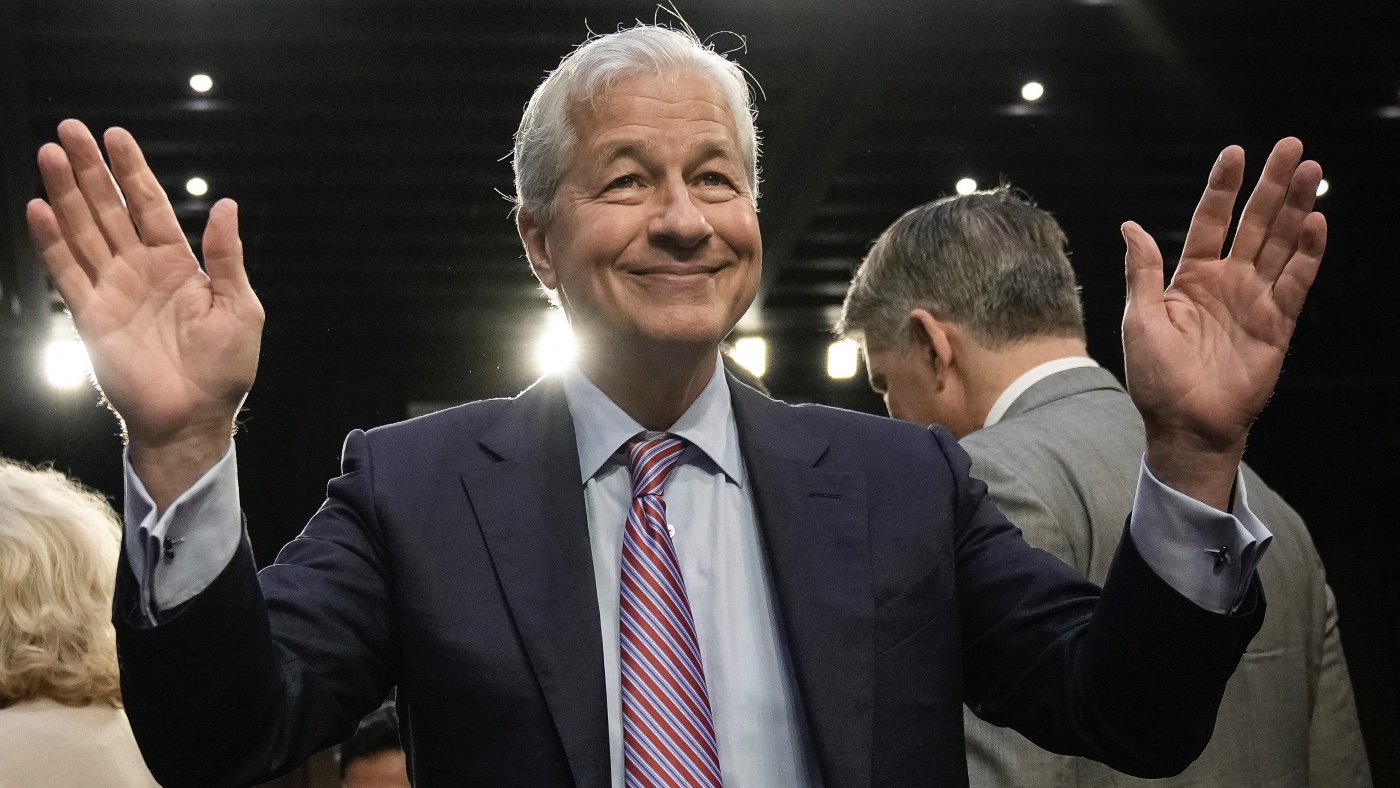JP Morgan: has world’s largest bank got too big for its boots?
Whether you view it as a rescuer or predator, America’s largest bank raises troubling questions

A free daily email with the biggest news stories of the day – and the best features from TheWeek.com
You are now subscribed
Your newsletter sign-up was successful
“His ears are smaller. And there is no crown. But on Wall Street, at least, Jamie Dimon is America’s answer to King Charles III,” said Patrick Jenkins in the Financial Times (FT): “adulated by some, resented by others, but incontrovertibly powerful”.
Last week, the long-time JPMorgan Chase boss “cemented his royal status” with another landmark rescue deal, snapping up the failing First Republic bank. The turbulence of recent months has turned into “a full-blown regional banks crisis”, and there may be more deals to come: the febrile mood has proven helpful to big banks like JPM, which command greater trust from depositors and investors. But what about the bigger picture? They are not immune to instability, particularly given jitters about the looming US government debt ceiling. “The US authorities should be weighing an urgent question”: is JPMorgan too big to fail, too big to manage or “too big to manage without”?
‘Last man standing after 2008 crash’
Famously the “last man standing” after the 2008 financial crisis, Dimon, 67, has “stuck around long enough to emerge victorious from the next mess”, said Bloomberg Businessweek. Many reckon he fancies reprising the role of founder J. Pierpont Morgan, who stopped “a rash of bank runs” during the Panic of 1907 when he “locked rival financiers in his library and cajoled them into propping up financial institutions”. Not that Dimon’s motives are entirely altruistic.
The Week
Escape your echo chamber. Get the facts behind the news, plus analysis from multiple perspectives.

Sign up for The Week's Free Newsletters
From our morning news briefing to a weekly Good News Newsletter, get the best of The Week delivered directly to your inbox.
From our morning news briefing to a weekly Good News Newsletter, get the best of The Week delivered directly to your inbox.
Thanks to accounting quirks, JPM booked a $2.6bn gain from the acquisition of First Republic. And there are plenty of critics of the rescue deal. Such deals are “the easiest way to deal with immediate issues”, says the Stanford University economist Anat Admati. But in the longer term, they perpetuate a tendency to “kick cans down the road” that has long plagued the banking sector. Shares in other regional banks, notably PacWest, continued to plummet after the First Republic rescue – evidence that “the broader financial system remains stressed”. The US Fed this week warned of a credit crunch risk.
‘More powerful than ever’
Some have described JPM as “a kind of public utility”, said historian Adam Tooze in his Chartbook newsletter. Alternatively, you might view the bank, with its $4trn balance-sheet, as “a giant apex predator”. The flipside of Dimon’s “posturing as a patriotic servant of financial stability” is that financial markets are to some extent moulded around JPM’s business model. “Its decisions have macroscopic effects.”
After nearly two decades in charge, Dimon is more powerful than ever, said Bloomberg, giving “Wall Street’s favourite parlour game” – who will succeed him? – added edge. “Is there anyone else who could pull this off?”
A free daily email with the biggest news stories of the day – and the best features from TheWeek.com